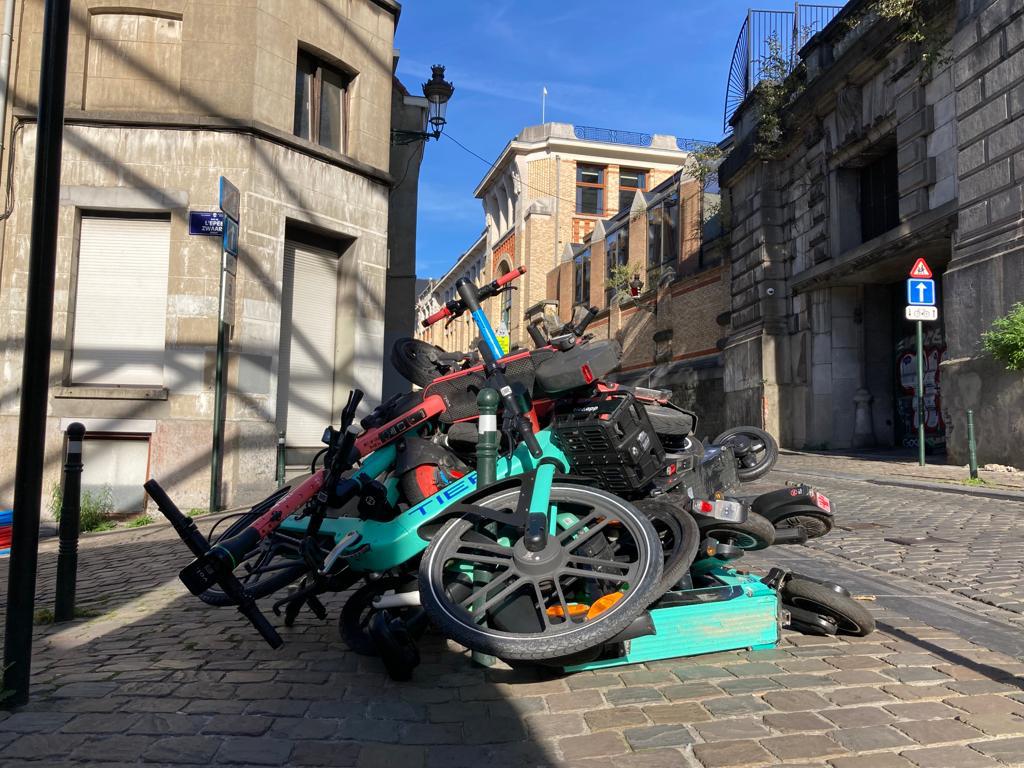The Brussels-Capital Region will better regulate the market of shared e-scooters and bikes in the city by implementing a 'numerus clausus' (a maximum) on the number of scooters and imposing a number of conditions on the shared mobility companies.
In the fight against scattered e-scooters, Brussels Mobility Minister Elke Van den Brandt drew up a proposal that was discussed at the Council of Ministers last week. The plan has not yet been officially approved, but Bruzz was able to see it.
While the Brussels-Capital Region Government embraces the recent micro-mobility trend to reduce car use and make mobility more multimodal, it wants to put a stop to the "rampant increase" in the number of scooters.
As many as 60,000 trips are made every day in the capital using shared vehicles (mainly scooters and bicycles). There are eight shared scooter companies active in Brussels – accounting for 23,500 scooters and 3,600 shared bicycles. If the proposal is approved, Brussels will not limit the number of companies to offer the service (as in Paris), but instead, allow only a maximum number of scooters per company.
Drop zones
The shared mobility companies will have to participate in a public call; the top two ranked companies will be able to operate 5,000 scooters each, the next two companies 1,500 each. The other companies have only 300 scooters, which is part of the plan to allow innovation in the emerging market. The measure should keep the number of scooters below 14,000. All licensed companies can also operate 2,000 shared bikes.
The companies will also have to meet a number of conditions: they will have to share data with the Brussels Region's 'Mobility as a Service' project, and will also be more strictly monitored for scattered parking.
This way, the government wants to put more responsibility for dealing with scattered scooters on the companies themselves: parking them on footpaths (where there are drop zones), on pedestrian crossings, cycle paths, on driveways, around parks, among other places, is prohibited.
Scooters are also not allowed to just be left on the ground. If they are, sanctions are possible. It is up to the companies to warn users about this and help curb wild parking that way.
Related News
- Drivers in Belgium using mobile phones will soon be fined thanks to use of smart cameras
- Good Move protests: Schaerbeek reopens talks with residents
Finally, shared scooter companies will also have to pay an annual levy per shared vehicle operated, which should generate €835,000 for the Brussels-Capital Region that the government wants to use to set up drop zones and strengthen the control service on scattered scooters. Companies will also have to pay if the region has to remove scooters left behind in a dangerous place.
The decision is currently still under discussion within the Brussels government but it is expected that it could be approved at first reading in one of the coming weeks.
After that, consultations with the sector, local authorities and mobility actors will start before it can then be finally approved, following the opinion of the Council of State.

